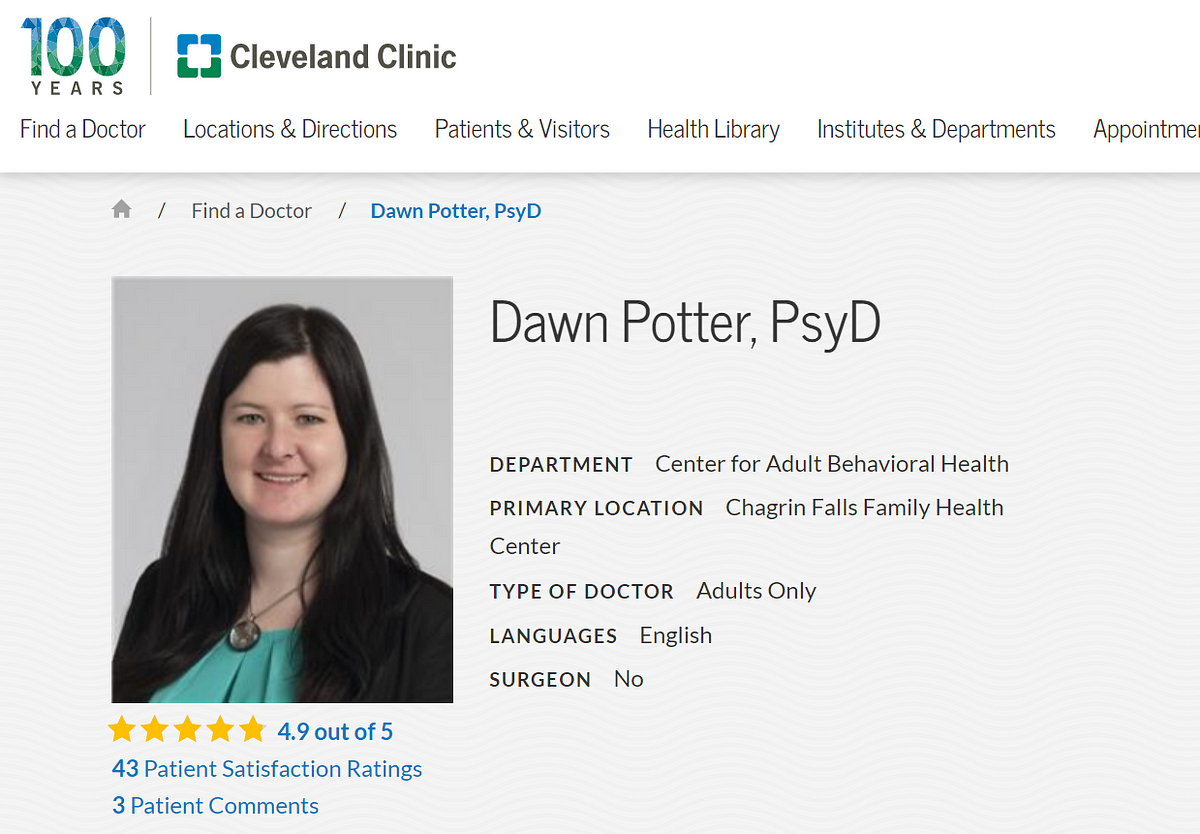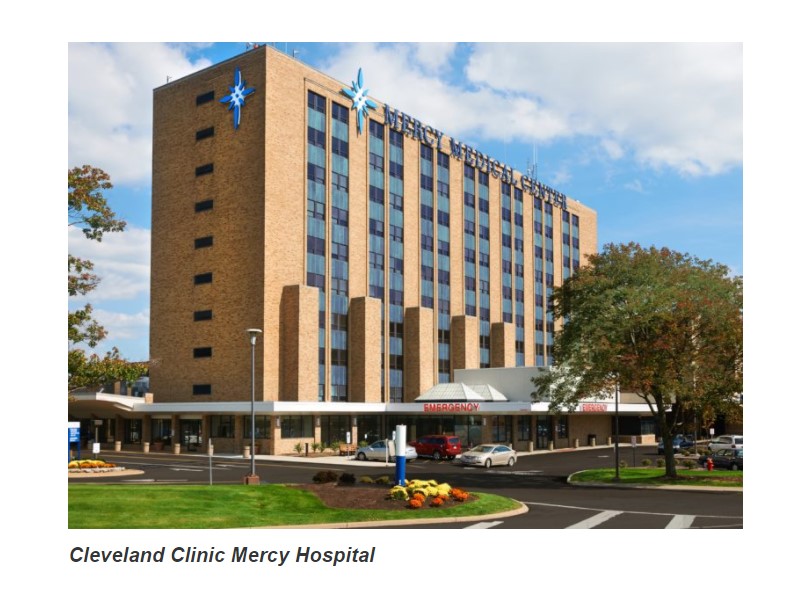The Health Strategist
The blog of Joaquim Cardoso MSc
October 26, 2021
This is an excerpt from Cleveland´s Clinic website, where they present their Therapy Services.
The purpose here is not a marketing for Cleveland Clinic, but a “polite provocation” to compare with the services provided by Brazilian Payers and Providers, to be used as a “food for tought” article, in developing new services, or improving existing ones.
Disclosure: The author of the blog does not have any commercial relationship with Cleveland Clinic.
Transcription of the Cleveland´s clinic website content below:
Comprehensive Therapy Services for Adults and Children
Cleveland Clinic Mercy Hospital offers you and your loved ones of all ages comprehensive therapy services and specialized programs. Many of our therapy services are available close to home at conveniently located health centers throughout our five-county service area.
Learn more about our therapy services:
Inpatient Therapy for Adults
Mercy Regional Rehabilitation Center is a 39-bed unit located on the fourth floor of our main hospital campus in Canton offering occupational, physical and speech therapies, as well as nursing and medical care.
Outpatient Therapy for Adults
Appropriate therapy in the outpatient setting is vital to recovery from surgery or an injury, the management of progressive diseases, and efforts to overcome physical, mental and developmental disorders.
At Mercy Hospital, we use an integrated, multi-disciplinary approach to outpatient therapy. Our experienced professional team of licensed physical, occupational and speech therapists emphasize holistic treatment across therapies, ensuring quality care for the whole person.
When you begin outpatient therapy with us, you will receive a treatment plan designed to meet your specific needs and schedule. Serving you at six convenient locations, Mercy Hospital provides multiple therapies at each location, minimizing your effort while maximizing your time.
Our Therapy Services treats a wide range of injuries, diseases and disorders, including orthopedic, neurological and arthritic conditions; workplace and sports injuries; communication and swallowing disorders; and general debilitation.
We offer:
- Physical therapy
- Occupational therapy
- Speech therapy
- Spine care
- Hand & upper extremity therapy
- Vestibular rehabilitation
- Pool therapy
- Low-vision rehabilitation
- Driver rehabilitation
- Sports medicine
- Cardiac rehabilitation
- Pulmonary rehabilitation
Outpatient Therapy for Children and Adolescents
Mercy Hospital Pediatric Therapy helps children from birth to age 18 who may benefit from physical, occupational or speech therapy. Therapy is provided by referral from your child’s physician, pediatrician, neurologist or orthopedist. Our therapists work closely with the County Board of Developmental Disabilities and your child’s school district.
Our services include:
Cardiac Rehabilitation
One of the area’s oldest established programs, Mercy Hospital’s Cardiac Rehabilitation Program has helped patients and their families with both physical and psychological recovery from heart disease. Cardiac Rehabilitation provides a safe, supervised program of exercise and education in a medical setting, with immediate access to emergency care. The program is specially designed and individually adapted to help patients with the following cardiac disorders resume active and productive lives:
- Heart attack (myocardial infarction)
- Open heart surgery (coronary artery bypass)
- Angina
- Congestive heart failure
- PTCA (percutaneous transluminal coronary angioplasty)
- Elevated coronary risk factors (cholesterol, blood pressure, weight, stress, etc.)
A four-phase program, Cardiac Rehab is designed to improve your recovery from heart disease with education and activities.
Sports Medicine
At Mercy Hospital, we understand the importance of mobility and specialize in the diagnosis, treatment, rehabilitation and prevention of musculoskeletal, sports and orthopedic injuries. Our professional treatment team includes physicians, physical therapists, physical therapy assistants, athletic trainers and exercise physiologists.
Regional Rehabilitation Center
Cleveland Clinic Mercy Hospital’s Regional Rehabilitation Center is a 20-bed unit located on the fourth floor of our hospital. Participants are able to take part in occupational, physical and speech therapies and receive nursing and medical care on the unit.
Originally published at https://my.clevelandclinic.org.
Transcription of the article below, from Cleveland Clinic as well:
PART II
_________________________________________________________
5 Types of Therapy: Which Is Best for You?
There are a variety of therapies, all of which can help you function better in your everyday life
October 25, 2021 / Mental Health
Psychologist Dawn Potter, PsyD, discusses the most common types of therapy and what might work best for you.

Feeling overwhelmed with life? Experiencing anxiety? Struggling with your mental health can be scary, especially when you don’t know where to turn or how to begin working on improving yourself.
Talking to a trained mental health professional can help. And depending on what you’d like to accomplish during your sessions, there are a variety of different therapies.
Psychologist Dawn Potter, PsyD, discusses the most common types of therapy and what might work best for you.
What is psychotherapy?
Psychotherapy, also known as talk therapy, can help those with mental disorders or emotional difficulties. It can lessen symptoms and help individuals function better in their everyday lives.
This kind of therapy is often used in combination with medication or other therapies.
The National Institute of Mental Health says 1 in 5 U.S. adults experiences mental, behavioral or emotional disorders, but less than half have received any mental health services in the past year.
Consider therapy if:
- You have trouble managing stress.
- You consistently feel overwhelmed or exhausted.
- You have persistent problems you can’t solve on your own.
- You feel depressed or disinterested in life.
- You have anxiety.
Common types of psychotherapy
There are several types of therapy.
A mental health professional may combine different aspects of different types to best meet the needs of the individual seeking treatment.
- Psychodynamic therapy
- Behavioral therapy
- Cognitive behavioral therapy (CBT)
- Dialectical behavioral therapy (DBT)
- Humanistic therapy
Psychodynamic therapy
Therapists use this approach to help people identify unconscious beliefs that can impact their mood and behavior — many times stemming from their childhood. For example, someone who was disciplined as a child for any grade below an A might have an unconscious belief that they will be punished for anything less than perfect.
“The goal is to increase insight into whatever kind of unconscious material might be driving behavior in order to promote some kind of change through the person understanding themselves and why they do certain things,” says Dr. Potter.
This is a good option for those who have problems with self-esteem, self-confidence and self-expression. It can also help those who have depression and anxiety.
Behavioral therapy
A contrast to psychodynamic therapy, behavioral therapy focuses on the present. There’s less focus on why a behavior started and more emphasis on the barriers to changing it and why that behavior is being rewarded.
“We want to reinforce desired behaviors that we want to increase,” says Dr. Potter. “And then we want to have consequences for undesired behaviors.
Used often with children, it establishes rewards for things like making their bed and removes privileges for things like acting out.
Some subsets of behavioral therapy include:
- Systematic desensitization: This practice slowly introduces exposure to something you might fear like spiders.
- Aversion therapy: The idea here is to create consequences for behaviors that you want to stop like biting your nails.
- Flooding: A more direct approach to dealing with phobias, this practice places you in a situation where you’re confronted with your fear or phobia so you can process all your feelings at once.
Behavioral therapy is good for dealing with phobias, substance use disorders and obsessive-compulsive disorder (OCD).
Cognitive behavioral therapy (CBT)
Cognitive behavioral therapy combines some of the principles of behavioral therapy with the theory that our thoughts, feeling or behaviors are all connected and influence each other.
“So if we think differently or if we act differently, we could likely feel differently,” says Dr. Potter. “And sometimes our feelings are going to also influence how we think and act.”
A lot of CBT involves talking with your therapist about your thought process about any situations you’d like to discuss. Your therapist will ask what you were thinking and how it made you feel.
“It’s really trying to identify and shift patterns of thinking that might be problematic or inaccurate,” says Dr. Potter.
The goal is to replace harmful or negative thought patterns or behaviors with ones that helpful and positive.
People with mood disorders, anxiety, eating disorders and OCD might find CBT helpful.
Dialectical behavioral therapy (DBT)
Originally developed as a specific treatment for borderline personality disorder, this type of therapy focuses on developing skills to cope with challenging situations. “Dialectical” simply means a logical discussion of ideas and opinions, and the goal is to learn how to deal with and accept difficult emotions,” she says.
“It’s used to treat disorders that have a lot of emotional dysfunction,” says Dr. Potter. “It helps people develop mindfulness, emotional regulation and interpersonal effectiveness skills. It helps them regulate negative emotions and have healthier relationships.”
Dialectical behavioral therapy is useful for people who are having suicidal thoughts and other self-destructive behaviors.
Humanistic therapy
Focusing on people’s strengths, humanistic therapy can help people achieve their goals and feel more satisfied in life. It focuses less on treating symptoms and problems.
“You will usually focus on self-discovery and self-acceptance,” says Dr. Potter. “It could be really helpful for someone who is doing OK in life but wants to grow.”
Sessions are less structured than other therapies and are good for those who want to discuss existential issues or big picture issues. It can help you understand your worldview and develop true-self acceptance.
Anyone dealing with self-esteem issues, relationship issues, depression or anxiety might find humanistic therapy beneficial.

How to decide what’s best for you
To help find the best type of therapy for you, Dr. Potter suggests starting out with what problems or issues you’d like to discuss.
Ask yourself:
- What do I want to change?
- What is getting in the way of me making that change?
- How much structure do I want in my sessions?
“For example, if you know you have a compulsive behavior like gambling or overeating, then you might want to seek out a behavioral therapist,” she says.
It’s also important to note that many mental health professionals use an integrative approach, meaning they are trained in a variety of therapies and will often use multiple approaches into their patient’s treatment.
Ask any potential therapists the following questions to help make the best decision:
- Are you licensed?
- Do you have experience treating people with similar problems?
- How do you think that I can get better?
- What kind of approaches do you use for problems like this?
“If you have a sense that something is wrong and you don’t know how to fix it, then therapy is a good option,” says Dr. Potter.
Part II
Originally published at https://health.clevelandclinic.org













